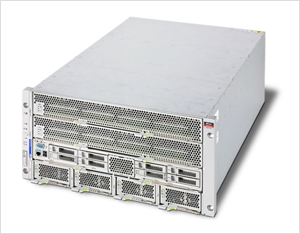The ball has finally dropped at Apple, and we know that October 4 is the big day that iOS 5 and some undisclosed subset of iPhone devices will be unveiled. Oddly, developers still haven’t received the Gold Master of iOS 5, which means that Apple is cutting things close if it wants to give people time to update apps in the store, not to mention those of us who have to revise books once the NDA lifts on iOS 5.
So, while we wait for Godot Tim Cook, let’s see what other mischief is afoot.
Royalties for Redmond
As we’ve reported previously, one of the big winners in the growth of Android has been Microsoft, as phone manufactures have been lining up to pay royalties to Redmond to avoid patent lawsuits. Samsung joined the fray this week, agreeing to pony up a reported $5 per phone to stay out of court.
In light of this, Google’s purchase of Motorola Mobility is looking less and less wise. The widely held view was that the sale was intended to shield Android-based phones behind Motorola’s rich patent portfolio, but every major player is caving into Microsoft anyway.
Between the squeeze play on Android and the long-standing siphoning of Linux revenues from companies such as Novell, Microsoft seems to be following a business plan reminiscent of a certain Monty Python sketch.
SPARC? Oh yeah, I remember that …
 Back when dinosaurs ruled the earth, the absolutely hottest thing you could have on your desk was a Sun-4. The SPARC-based systems were leaps and bounds ahead of anything else in their price range, except perhaps for some esoteric hardware from Silicon Graphics (remember them?)
Back when dinosaurs ruled the earth, the absolutely hottest thing you could have on your desk was a Sun-4. The SPARC-based systems were leaps and bounds ahead of anything else in their price range, except perhaps for some esoteric hardware from Silicon Graphics (remember them?)
Time has not been kind to the SPARC, alas. Sun’s hardware market share shrank as people discovered that Linux on cheap hardware could give a better bang for the buck, and the entire venture was eventually swallowed by Oracle. The conventional wisdom was that Oracle bought Sun largely for its hardware line, and there was some confirmation of that this week. While much of the rest of Sun’s holdings have been left to languish or spun off entirely, Larry’s gang has evidently been busy with hardware. The SPARC T4 is the result.
The problem is, while the T4 brings some modern features like out-of-order execution to the SPARC line, these are things that other processor families have had for a decade or more. While it may staunch the flow of former SPARC customers defecting to x86 systems, it’s unlikely to gain many new converts. And as any Harvard MBA can tell you, a business model based on not losing existing customers is not a formula for success in the long term.
Might want to rethink those voting machines (and the people who use them)
We’ve been hearing for years that direct recording electronic voting machines are potentially hackable. With a powder-keg election forthcoming, it was therefore not reassuring news this week that researchers at Argonne National Laboratory were able to totally subvert the voting counts on Diebold voting machines, simply by installing a $10 circuit between a ribbon cable and the connector. Since Diebold machines are not tamper resistant, this means that pretty much anyone with the technical savvy to create the device could hijack the polls.
I see this as part of a larger problem in the computer industry — an almost blind belief that technology can solve social problems in isolation. People seem to think that making government data transparent or turning to social networking can solve society’s ills. In reality, the things that need to be re-engineered are the people. The best software in the world won’t make people give up irrational belief systems, or stop hating others (be they red state or blue) because they’re different. And as long as hate, intolerance and ignorance run wild, technology will be as likely to be used as a weapon as a solution.
Got news?
Please send tips and leads here.
Related:
